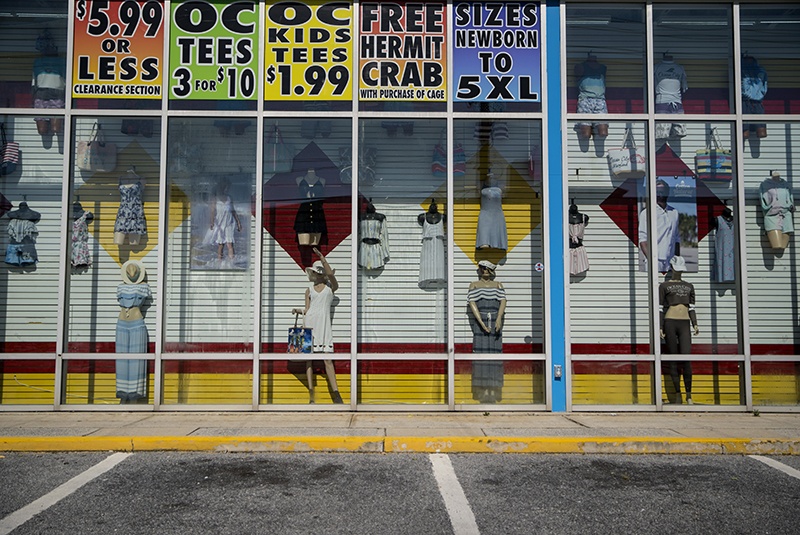
WASHINGTON: Eighty-one percent of small US companies surveyed by Veem, a global payments network, expect the new coronavirus pandemic to affect their business over the next 12-16 months, and nearly 90 percent are bracing for an economic slowdown, the company said yesterday.
San Francisco-based Veem, which helped thousands of small companies apply for loans under the federal government’s $660 billion emergency Paycheck Protection Program (PPP), said small businesses were moving quickly to adapt to the changing climate. Of the 690 firms surveyed, 65 percent said they had either submitted an application for the federal aid or planned to do so in the near future, Veem said in its first report on the sentiment among small to mid-sized businesses.
The Small Business Administration has so far approved more than 2.5 million loans totaling $536 billion, it said Friday. The US economy - the largest in the world - has been particularly hard hit by widespread shutdowns aimed at containing the spread of COVID-19, the disease caused by the coronavirus. US government data on Friday showed the unemployment rate surging to 14.7 percent last month. The White House said joblessness could hit 20 percent in May.
The crisis was having a mixed impact on small businesses, said Veem chief executive Marwan Forzley, with some companies struggling to survive, while others benefited as their businesses were deemed essential or they switched to working online.
“When you look at the data, there’s surprising resiliency with these small and mid-sized businesses. Despite all the uncertainty, they’re trying to make changes in their businesses, to ... either benefit from the situation or repurpose their business so that they’re not as badly impacted.”
Nearly 70 percent of the companies surveyed cited some uncertainty about the US economy in 2020, and 55 percent said they had already experienced some significant impact to revenue.
About 30 percent of the companies were more optimistic, suggesting that some industries were better positioned to thrive in the current environment, Forzley said, citing online retailers and other e-commerce businesses. More than half of the companies reported moderate to high supply-chain disruptions as a result of factory shutdowns, border restrictions and industry-wide furloughs, and more than one third said they were now setting up regional supply chains or rapidly pivoting their supply chain to make needed supplies.
Michigan was due to allow its factories to resume production later yesterday after more than six weeks of a coronavirus lockdown, removing a major obstacle to North American automakers seeking to bring thousands of idled employees back to work this month.
Michigan, a major Midwest industrial powerhouse hard hit by both the coronavirus pandemic and its economic fallout, is the latest of several states permitting the restart of assembly lines halted in mandatory business closures meant to contain the outbreak.
But in announcing plans last week to reopen manufacturing, Whitmer, a Democrat, extended a stay-at-home order requiring residents to remain mostly indoors, except for outings like grocery shopping, doctor visits and limited recreation.
Whitmer, seen as a potential running mate for presumed Democratic presidential nominee Joe Biden, was an early target of protests around the country organized by supporters of Republican President Donald Trump demanding to end the lockdown. Michigan, a crucial electoral swing state narrowly carried by Trump in 2016, has lost more than 4,550 lives to COVID-19, the respiratory illness caused by the novel coronavirus, ranking fourth among the 50 US states in deaths.
In the nation as a whole, nearly 80,000 Americans have died from COVID-19, out of more than 1.34 million known U.S. infections tallied since Jan. 20, according to figures compiled by Reuters.
Whitmer’s reluctance to reopen factories in Michigan also had hampered efforts to restart vehicle assembly elsewhere in the United States because key parts suppliers are based in and around Michigan’s automaking hub, Detroit. The clamor for Whitmer to give the go-ahead increased when Republican Governor Mike DeWine in the neighboring state of Ohio, also a key player in the auto industry, announced he was permitting manufacturing to resume there as of last Monday. California followed suit on Friday.
The government of Mexico, another important link in North America’s automobile production chain, is expected to make an announcement this week regarding its plans for the industry.
The auto sector accounts for 6 percent of US economic output, with more than 835,000 Americans employed in vehicle production. Several weeks of widespread business shutdowns as part of unprecedented social distancing measures have dealt a catastrophic blow to the US economy, casting Americans out of work in numbers unseen since the Great Depression of the 1930s.
The US Labor Department reported the nation’s unemployment rate climbed to 14.7 percent last month, up from a record low of 3.5 percent in February, and shattering the previous post-World War Two high of 10.8 percent reached in November 1982. Some 33.5 million US workers have filed first-time claims for jobless benefits over the past seven weeks.
While New York state, the US epicenter of the pandemic, has reported a steady decline in hospitalizations and other key measures of the outbreak in recent weeks, many states - especially in the Midwest - are seeing rising case tallies even as they forge ahead to reopen their economies. Public health experts have warned that moving too quickly to reopen, without vastly expanded diagnostic testing and other precautions firmly in place, risks fueling a resurgence of the virus.
It also remains to be seen how many consumers are willing to venture back into shopping malls and restaurants in the midst of an ongoing pandemic for which there is no vaccine and no cure. – Reuters









